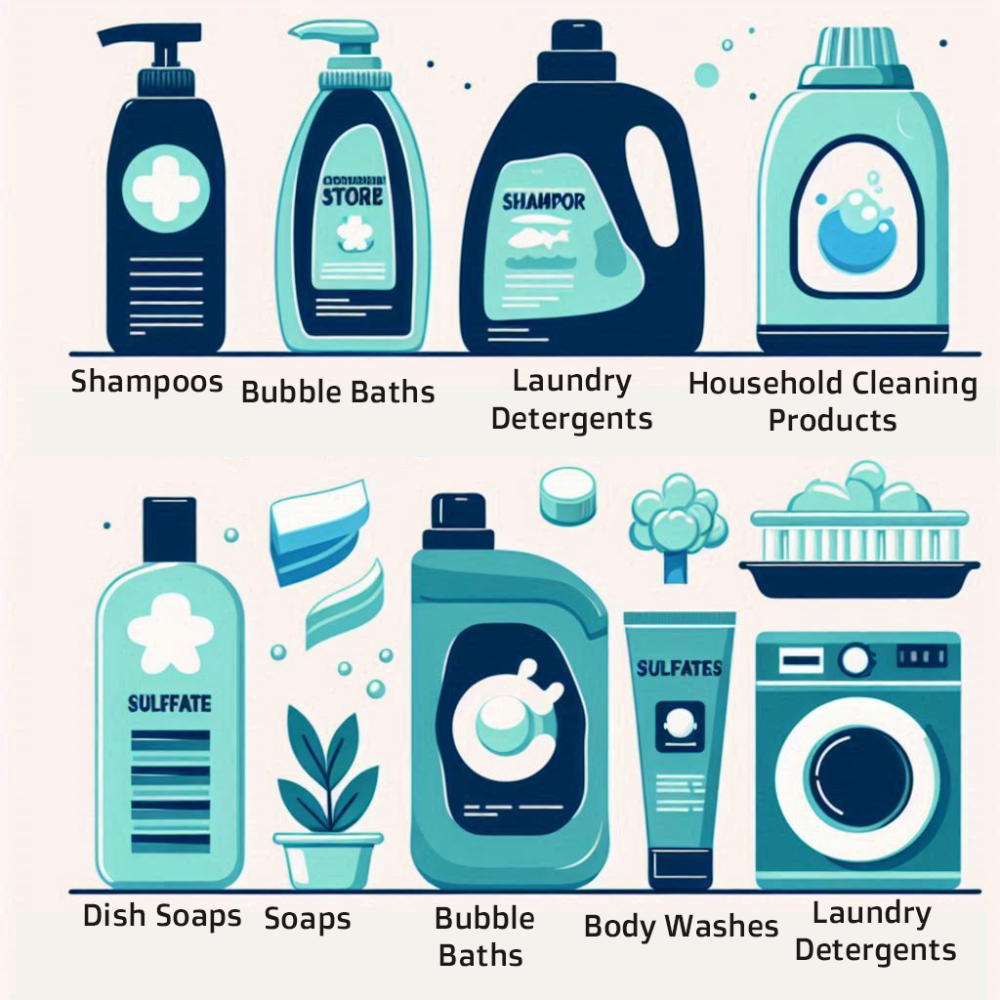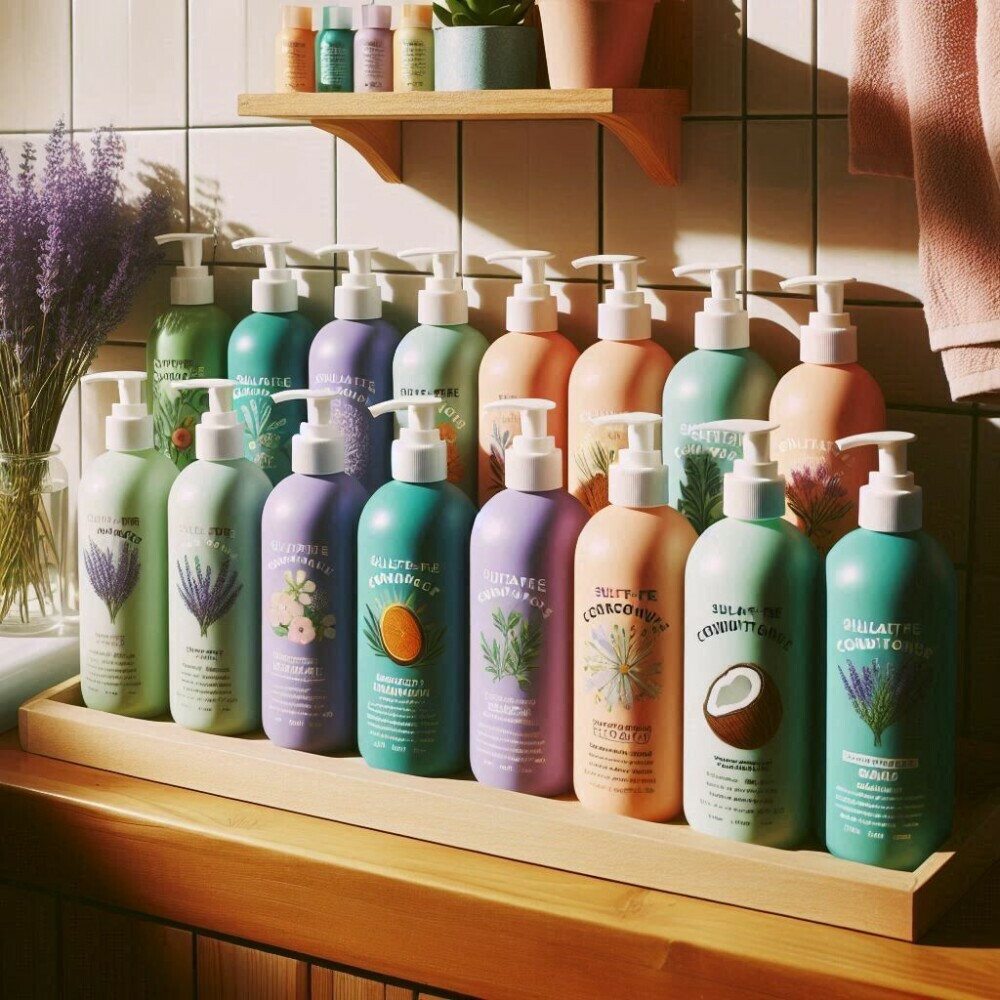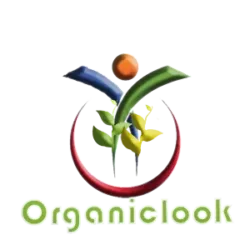Introduction
If you’ve ever wondered why so many people are switching to sulfate-free skincare and haircare, there’s a good reason. Sulfates—especially sodium lauryl sulfate (SLS) and sodium laureth sulfate (SLES)—are some of the most common cleansing agents found in everyday products like shampoos, face washes, toothpastes, and even household cleaners. While they are effective at creating foam and removing dirt, growing research shows that these harsh surfactants may be doing more harm than good.
From skin irritation and hair damage to potential long-term health concerns, sulfates can disrupt your skin’s natural balance and weaken your body’s protective barriers. If you have sensitive skin, eczema, rosacea, or simply want to adopt a cleaner, more holistic beauty routine, understanding the impact of sulfates is essential.
In this guide, we’ll explore the harmful effects of sulfates on your health and skincare, the everyday products that commonly contain them, and gentle, natural alternatives that support a healthier, more radiant you. Making the switch to sulfate-free products isn’t just better for your skin and hair—it’s a meaningful step toward cleaner living, a safer home environment, and a more eco-conscious lifestyle.
1. Skin Irritation:
- Sulfates, especially sodium lauryl sulfate (SLS) and sodium laureth sulfate (SLES), can strip away natural oils from the skin, leading to dryness and irritation.
- Individuals with sensitive skin or conditions like eczema and rosacea may experience worsening symptoms.
2. Eye Irritation:
- Sulfates can irritate the eyes, particularly in higher concentrations, causing discomfort and redness.
3. Hair Damage:
- Sulfates can strip natural oils from the hair and scalp, leading to dryness, brittleness, and frizz.
- Prolonged use can damage the hair shaft, making hair more prone to breakage.
4. Allergic Reactions:
- Some individuals may develop allergic reactions to sulfates, manifesting as redness, itching, or hives.
5. Environmental Impact:
- Sulfates are not always fully biodegradable and can contribute to water pollution, affecting aquatic life.
6. Potential Contaminants:
- During the production of SLES, a byproduct called 1,4-dioxane can form. This compound is a known carcinogen and can be present in trace amounts in sulfate-containing products.
Common Products Containing Sulfates

1. Shampoos:
- Sulfates are widely used in shampoos to create a rich lather and remove dirt and oil from the scalp and hair.
2. Body Washes and Soaps:
- Sulfates are used to produce foam and effectively cleanse the skin.
3. Toothpaste:
- Sulfates help create a foaming action that assists in spreading the toothpaste and removing debris from teeth.
4. Face Cleansers:
- Some facial cleansers use sulfates to help remove makeup, dirt, and oil from the skin.
5. Bubble Baths:
- Sulfates are used to create bubbles and foam in bubble bath products.
6. Household Cleaning Products:
- Sulfates are common in dish soaps, laundry detergents, and other cleaning agents for their ability to cut through grease and grime.
Examples of Products:
- Shampoos: Many drugstore brands and some salon brands.
- Body Washes: Widely found in various price ranges and brands.
- Toothpaste: Some brands, though sulfate-free options are available.
- Face Cleansers: Some popular facial wash brands.
- Bubble Baths: Many commercial bubble bath products.
- Dish Soaps: Common household dishwashing liquids.
- Laundry Detergents: Various mainstream detergent brands.
Alternatives to Sulfates
- Cocamidopropyl Betaine: A milder surfactant derived from coconut oil.
- Decyl Glucoside: A gentle cleanser derived from glucose.
- Sodium Cocoyl Isethionate: A sulfate-free surfactant that is gentle on the skin.
- Sodium Lauroyl Methyl Isethionate: Another mild, sulfate-free alternative.
Switching to sulfate-free products can help reduce the risk of irritation and dryness while still effectively cleansing the skin, hair, and body.

Healthier Alternatives
1. Sulfate-Free Shampoos and Conditioners:
- Look for products labeled “sulfate-free” and made with gentler surfactants like coco-glucoside or decyl glucoside.
2. Natural Body Washes and Soaps:
- Opt for products made with natural oils and butters, which cleanse without stripping the skin’s natural barrier.
3. Gentle Facial Cleansers:
- Choose cleansers with hydrating ingredients like glycerin or aloe vera that cleanse without causing irritation.
4. Natural Toothpastes:
- Consider sulfate-free toothpaste options, which often use baking soda or plant-based cleansers for a gentler clean.
5. Eco-Friendly Cleaning Products:
- Use natural or organic household cleaners that avoid harsh chemicals, including sulfates, to reduce exposure and environmental impact.
Discover the Power of Organic, Clean, and Natural Living
At organic-look we’re passionate about holistic well-being and helping you live your best life naturally. Explore our articles on organic, clean, and natural living.
Ready to embrace clean, compassionate beauty? Download the Vegan Skincare Starter Checklist. Start building your vegan skincare routine today — and discover more ways to live naturally, beautifully, and consciously at Organic-Look. And while you’re exploring, feel free to browse our wellness-inspired items at our POD store.





